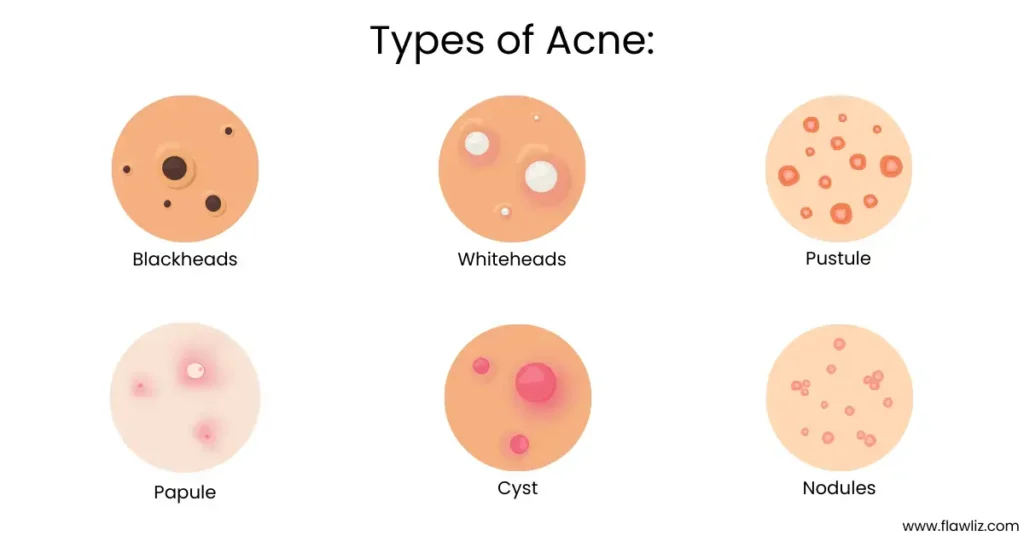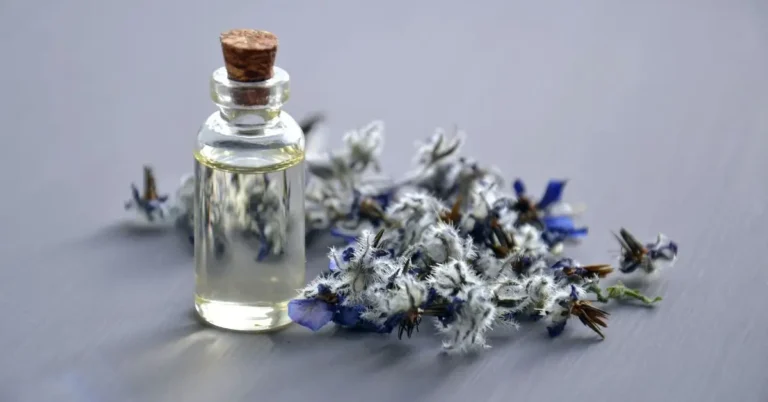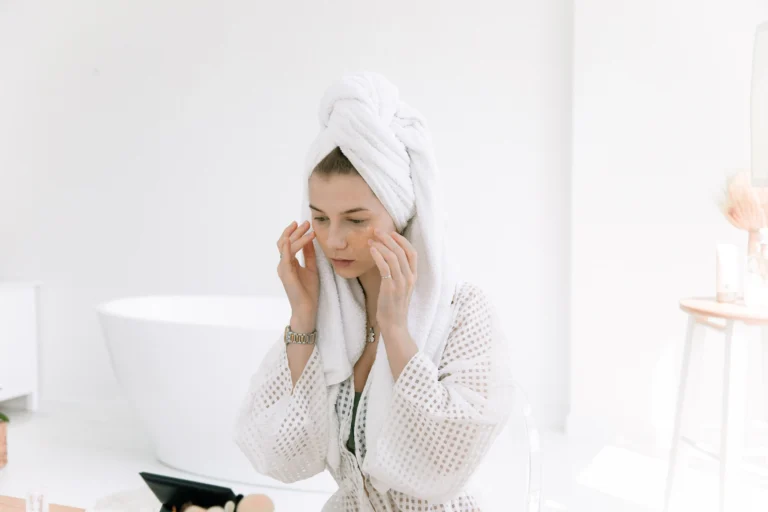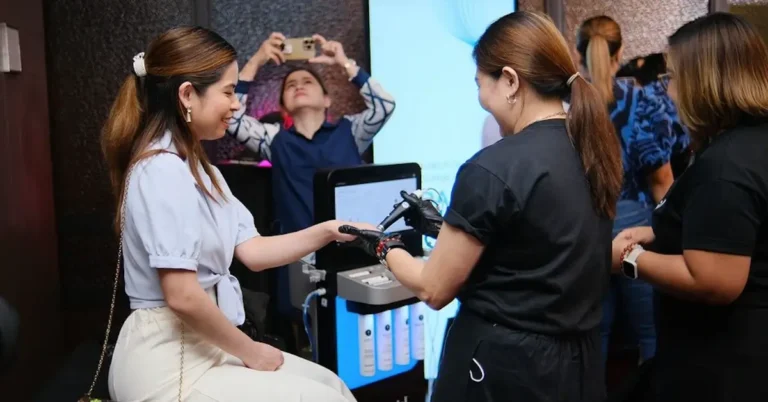Is it possible that saunas can aid in combating acne? If you’re constantly dealing with skin imperfections, it’s likely you’ve gone through the cycle of trying out new remedies, only to find yourself let down again. The pursuit of flawless skin can seem like an endless struggle, often resulting in frustration and a sense of defeat.
Imagine this: stepping into a sauna, a simple act that could be the key to kicking those stubborn breakouts and getting your confidence back. Sounds almost too good, right?
After years of letdowns, you’re probably skeptical. Is this another skincare myth, or could saunas be the real deal for conquering acne?
Table of Contents
Do Saunas Help Acne?
So, do saunas help with acne? The answer is yes if used correctly.
After doing some research and speaking with dermatologists, I’ve discovered that there is some truth to the idea that saunas can help with acne. When you sweat in a sauna, it can help to unclog pores and remove impurities from the skin.
Additionally, the heat from the sauna can help to increase blood flow and oxygenation to the skin, which can promote healing and reduce inflammation.
Of course, like with any skincare treatment, there are some caveats to keep in mind. It’s important to use saunas properly to reduce the potential for breakouts, such as hydrating before, during, and after saunaing, washing your face before and after, and avoiding the sauna if you have any open wounds or active acne.
With the right approach, however, incorporating saunas into your skincare routine could be a helpful way to combat acne and achieve clearer, healthier skin.
Understanding Acne

Acne is a common skin condition that affects millions of people around the world, and it can be caused by a variety of factors. In this section, I’ll discuss the causes and types of acne to help you better understand this condition.
Causes of Acne
Acne occurs when hair follicles become clogged with oil and dead skin cells. This can lead to the formation of pimples, blackheads, and whiteheads.
While the exact cause of acne is unknown, several factors can contribute to its development.
- Hormones: Changes in hormone levels, such as those that occur during puberty, can cause an increase in oil production, which can lead to acne.
- Genetics: Acne can run in families, so if your parents had acne, you may be more likely to develop it as well.
- Diet: Some studies suggest that certain foods, such as dairy and high-glycemic-index foods, may contribute to acne.
- Stress: Stress can cause an increase in hormone levels, which can lead to acne.
Types of Acne

There are several different types of acne, each with its own characteristics and treatment options.
- Whiteheads: These are small, raised bumps that are white or yellow in color. They occur when hair follicles become clogged with oil and dead skin cells.
- Blackheads: These are similar to whiteheads, but they are open to the skin’s surface and appear black or dark brown in color.
- Papules: These are small, raised bumps that are red in color and can be painful to the touch.
- Pustules: These are similar to papules, but they contain pus and are often larger and more inflamed.
- Nodules: These are large, painful bumps that occur deep under the skin’s surface.
- Cysts: These are similar to nodules, but they are filled with pus and can be very painful.
Pro Tip: One way to help prevent acne is to keep your skin clean and avoid touching your face with your hands. Also, consider using non-comedogenic skincare products that won’t clog your pores.
Saunas and Skin Health

One method that has piqued my interest is the use of saunas. But before jumping in, it’s important to understand the potential benefits and risks.
Benefits of Saunas
Saunas have been used for centuries for their therapeutic benefits, including improving skin health. Here are a few ways that saunas may benefit your skin:
- Increased blood flow: The heat from a sauna can increase blood flow to the skin, which may help deliver nutrients and oxygen to the skin cells.
- Sweating: Sweating in a sauna can help flush out toxins and impurities from the skin, which may help reduce acne.
- Exfoliation: The heat can help loosen dead skin cells, making it easier to exfoliate and reveal smoother, brighter skin.
Potential Risks

While saunas can have benefits for skin health, there are also potential risks to be aware of:
- Dehydration: Spending too much time in a sauna can lead to dehydration, which can dry out the skin and exacerbate acne.
- Irritation: The heat and humidity in a sauna can irritate sensitive skin, causing redness and inflammation.
- Bacterial growth: Saunas can be a breeding ground for bacteria, so it’s important to use a clean towel and avoid sharing towels with others.
Remember: To minimize the risks and maximize the benefits, limit your sauna sessions to no more than 15-20 minutes at a time, and drink plenty of water before and after
How Saunas Can Help Acne

In this section, I will explain how saunas can help acne and the science behind it.
Heat and Pore Cleansing
One way that saunas can help with acne is through the heat they produce. When you enter a sauna, your body temperature rises, causing your blood vessels to dilate and increasing blood flow to your skin.
This increased blood flow can help to flush out toxins and impurities from your pores, leading to a clearer complexion.
Additionally, the heat from a sauna can help to open up your pores, allowing for a deeper cleanse. When your pores are open, it is easier for dirt, oil, and dead skin cells to be removed, which can help prevent breakouts.
Sweating and Toxin Release
Started going to the sauna & my acne cleared up 🌚
— LAINA☔️ (@_lainalane) April 19, 2023
Another way that saunas can help with acne is through sweating. When you sweat, your body releases toxins and impurities through your pores. This can help to reduce inflammation and prevent breakouts.
In addition to releasing toxins, sweating can also help to regulate your skin’s pH balance. When your skin’s pH is balanced, it produces less sebum, which can help to prevent pimples.
Pro Tip: To get the most out of your sauna session, make sure to drink plenty of water before and after. This will help to keep you hydrated and ensure that your body can properly flush out toxins.
Scientific Studies on Saunas and Acne

One study published in the Journal of Investigative Dermatology found that sweating can help unclog pores and reduce acne. The study showed that sweating helps to remove dead skin cells and other debris that can clog pores and lead to breakouts.
Saunas can also help to increase blood flow, which can bring more oxygen and nutrients to the skin, promoting healing.
Another study published in the Journal of Cosmetic and Laser Therapy found that infrared saunas may be particularly effective in treating acne. Infrared saunas use heat to penetrate deeper into the skin, stimulating collagen production and reducing inflammation. This can help to reduce the appearance of acne scars and prevent future breakouts.
Precautions When Using Saunas for Acne

Saunas can be a great way to help clear up acne, but it’s important to take some precautions to avoid any negative side effects. Here are some things to keep in mind when using saunas for acne:
- Hydrate before, during, and after your sauna session. Sweating can lead to dehydration, which can aggravate acne. Drinking plenty of water before, during, and after your sauna session can help keep your skin hydrated and healthy.
- Wash your face before getting into the sauna. This will help remove any excess dirt and oil from your skin so that you don’t end up with a layer of grime sitting on top of your sweaty skin.
- Use a clean towel to sit on in the sauna. This will help prevent any bacteria or dirt from getting on your skin, which can aggravate acne.
- Don’t spend too much time in the sauna. While saunas can be great for your skin, spending too much time in a hot, dry environment can be harmful. Limit your sauna sessions to around 15-20 minutes, and take breaks if you start to feel uncomfortable.
- Don’t use the sauna if you have open wounds or sores on your skin. Saunas can be a breeding ground for bacteria, and using one with open wounds or sores can increase your risk of infection.
- Be careful not to overdo it. While saunas can be great for acne, they’re not a miracle cure. It’s important to continue using other acne treatments, such as cleansers and topical creams, in addition to using the sauna.
Remember: After your sauna session, rinse your face with cool water to help close your pores and prevent any dirt or bacteria from getting back in.
In my personal experience, using saunas for acne has been a great addition to my skincare routine. It’s a relaxing way to help clear up my skin, and I’ve noticed a significant improvement in my acne since I started using them.
Alternatives to Saunas for Acne Treatment

While saunas can be a great way to improve acne, other alternatives can also help. Here are some options to consider:
1. Steam Facials
Steam facials are a great way to open up your pores and cleanse your skin. They work by using steam to soften the skin and loosen dirt and impurities.
You can do a steam facial at home by boiling water in a pot and holding your face over the steam for a few minutes. Alternatively, you can use a facial steamer, which is a device that produces steam specifically for facial treatments.
2. Clay Masks
Clay masks are another great option for acne-prone skin. They work by absorbing excess oil and impurities from the skin, which can help to unclog pores and prevent breakouts. Look for masks that contain bentonite clay or kaolin clay, which are known for their ability to absorb oil and toxins.
3. Chemical Peels
Chemical peels are a more advanced treatment option that can help to improve the appearance of acne scars and hyperpigmentation. They work by using a chemical solution to remove the top layer of skin, which can help to stimulate collagen production and improve skin texture.
The 5 Most Effective Tips For Acne
- Keep Your Face Clean: Washing your face twice daily with a gentle cleanser can help remove excess oil, dirt, and dead skin cells that can clog pores and contribute to acne. However, avoid over-washing or using harsh cleansers, as this can strip away natural oils and exacerbate acne.
- Use Non-Comedogenic Products: Choose skincare and makeup products labeled as non-comedogenic, meaning they won’t clog pores. These products are less likely to contribute to acne breakouts.
- Moisturize Regularly: Contrary to popular belief, moisturizing is crucial even for acne-prone skin. Look for oil-free, non-comedogenic moisturizers to hydrate your skin without causing breakouts. Keeping your skin well-hydrated can help prevent it from overproducing oil, which can lead to acne.
- Avoid Touching Your Face: Touching your face can transfer dirt, bacteria, and oils from your hands to your skin, potentially leading to breakouts. Additionally, picking or squeezing pimples can worsen inflammation and increase the risk of scarring. Try to keep your hands away from your face as much as possible.
- Maintain a Healthy Lifestyle: Factors such as stress, diet, and sleep can influence acne. Managing stress through relaxation techniques like meditation or yoga, eating a balanced diet rich in fruits, vegetables, and whole grains, and getting enough sleep can all contribute to clearer skin.
My Personal Experience
For me, tackling acne is all about keeping it simple. I’ve figured out that a weekly routine of steam facials and clay masks does wonders for my acne-prone skin.
A steam facial opens up my pores, and then a clay mask swoops in to soak up the extra oil and gunk. Throw in a gentle cleanser and moisturizer, and bam, my skin stays balanced and healthy. Easy as that.
Do Saunas Help Acne: A Recap

After researching and analyzing various sources, I have come to the conclusion that saunas can help improve acne, but they are not a guaranteed cure. Here are the most important facts to keep in mind:
- Saunas can help reduce oiliness and regulate the skin’s pH balance, which can reduce the likelihood of developing pimples.
- The cause of acne cannot be summed up simply, but research has indicated that the onset of acne vulgaris is due to an overgrowth of bacteria which disrupts the skin’s balance of bacteria.
- While some limited studies suggest that saunas may have an impact on acne, there is not enough research to conclusively say yes.
- Using a sauna or steam room can help treat or prevent mild acne due to its ability to open pores, tighten skin, and reduce sebum production.
I have found that using a sauna can help improve my acne, but it is not a magic solution. It is important to remember that everyone’s skin is different and what works for one person may not work for another.
FAQ:
How long should you stay in a sauna for acne?
I’d recommend that you only use a sauna for 10 minutes at a time, as the heat has diminishing returns on circulation and body functions. Alternating between a cold plunge and a shower can aid in the removal of sweat from the face. Sweating for about 15 minutes in the sauna can be enough to remove dirt, oil, and bacteria from the skin.
What does a sauna do for acne?
Saunas can help acne sufferers by reducing oiliness and regulating the pH balance of their skin. Sweating out impurities is also advantageous, and the dry heat of a sauna can shrink pores and protect against acne.
Can the sauna make your face break out?
Because the heat dries out the skin, using a sauna can cause an increase in breakouts and dry skin patches. Because heat and steam are bad for acne, it is best to avoid saunas if you have acne. Saunas, on the other hand, can improve acne symptoms by reducing blemishes and clearing pores when used correctly.
Why does sauna clear skin?
Sauna bathing cleanses pores and glands by flushing out toxins and impurities. This can result in healthier skin that is less susceptible to acne, blackheads, and pimples. The heat from the sauna increases blood flow, which lowers blood pressure, and sweating aids in the removal of toxins from the body. Using a sauna can also help increase circulation.
Are saunas good for skin problems?
Saunas can help with skin conditions like psoriasis and dermatophytes by removing hyperkeratotic scales and killing infective microorganisms. Saunas can also aid in the removal of toxins from the body, increase circulation, and provide a natural deep cleansing. Saunas, on the other hand, can over-dry the skin and cause overheating if used excessively.
Should you wash your face after sauna?
Washing your face after a sauna session is recommended to help the pores contract back to their resting size and flush away salt, sebum, and dead skin cells. It is also beneficial to prepare problem areas of your skin before entering a sauna, use the proper facial cleanser, drink plenty of water, and follow up with a cold shower for added comfort.
If you liked this blog article about the question: Do Saunas Help Acne, don’t forget to leave us a comment down below to tell us about your experience with saunas.





